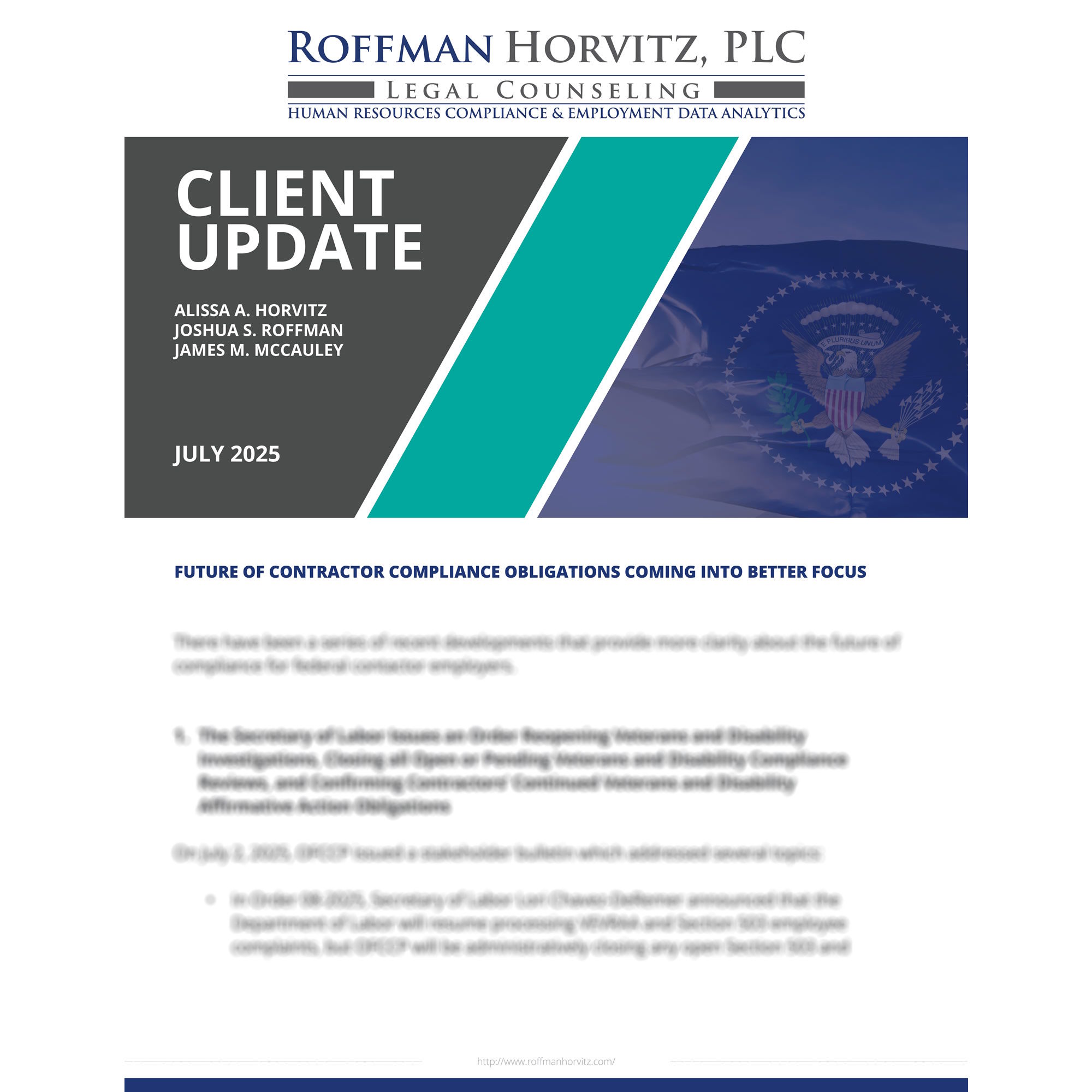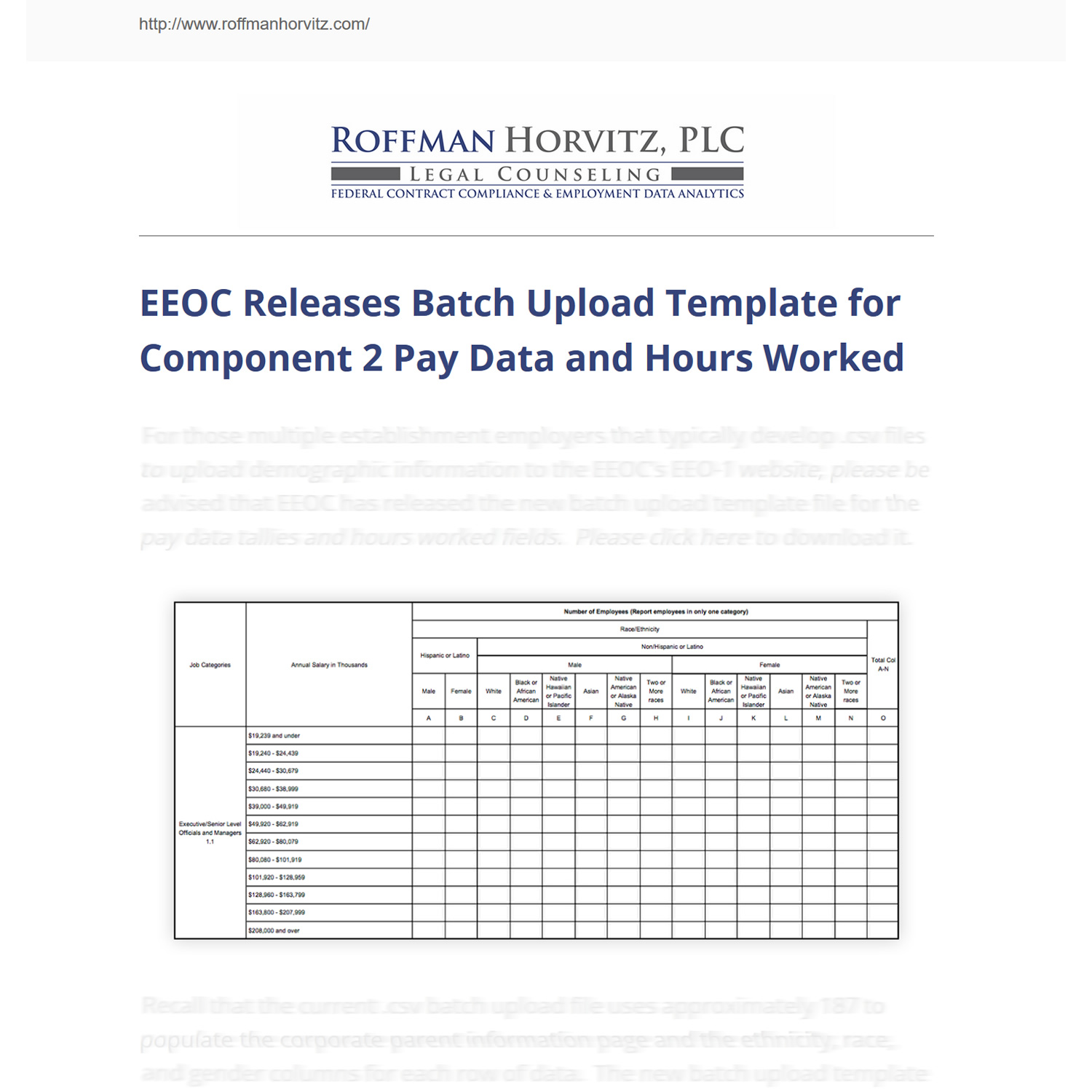Directive (DIR) 2018-06
U.S. DEPARTMENT OF LABOR
Office of Federal Contract Compliance Programs
A Directive (DIR) is intended to provide guidance to OFCCP staff or federal contractors on enforcement and compliance policy or procedures. A DIR does not change the laws and regulations governing OFCCP's programs and does not establish any legally enforceable rights or obligations.
Effective Date: August 24 , 2018
- SUBJECT: Contractor Recognition Program
- PURPOSE: To recognize contractors with high-quality and high-performing compliance programs and initiatives. These programs should have a record of accomplishment related to nondiscrimination and providing applicants and employees with equal employment opportunity under the laws enforced by the Office of Federal Contract Compliance Programs (OFCCP). To highlight specific contractor programs and initiatives that are innovative, have achieved demonstrable results, and that could be taught or incorporated into contractor peer mentoring programs.
- REFERENCES:
- Executive Order (EO) 11246, Sept. 24, 1965, as amended.
- Section 503 of the Rehabilitation Act of 1973, as amended, 29 U.S.C. § 793 (Section 503).
- Vietnam Era Veterans' Readjustment Assistance Act of 1974, as amended, 38 U.S.C. § 4212 (VEVRAA).
- 41 CFR Part 60.
- AFFECTED POLICY: None
- BACKGROUND: OFCCP enforces EO 11246, Section 503, and VEVRAA. Collectively, these laws prohibit federal contractors and subcontractors from discriminating on the basis of race, color, religion, sex, sexual orientation, gender identity, national origin, disability or status as a protected veteran.1 They also require federal contractors to take affirmative steps to ensure equal employment opportunity in their employment processes. Contractors also are prohibited from discriminating against applicants or employees because they inquire about, discuss, or disclose their compensation or that of others, subject to certain limitations.
OFCCP currently has jurisdiction over an estimated 120,000 contractor establishments and approximately 24,000 firms or parent companies. Based on the size of the contractor population and other factors, only a portion of these establishments are annually scheduled for compliance evaluations. Therefore, OFCCP must seek more ways to expand its compliance reach.
Contractor outreach conducted in 2017 and 2018, as well as other feedback, led OFCCP to conclude that:- Contractor recognition programs could support proactive compliance by contractors that are not scheduled for a compliance evaluation,
- Contractors could be encouraged by an approach that recognizes their best or model nondiscrimination and equal employment opportunity programs and initiatives, especially disability employment practices,
- Contractors could benefit from research or case studies on best or model compliance practices, and
- Contractors would be supportive of a compliance assistance model that includes a peer-to-peer mentoring type component because they believe other businesses best understand their compliance barriers and challenges.
- DEFINITIONS: For definitions of the terms "government contract," "subcontract," "prime contractor," and "subcontractor" see 41 CFR § 60-1.3 (EO 11246); 41 CFR § 60-300.2 (VEVRAA); and 41 CFR § 60-741.2 (Section 503).
- POLICY: OFCCP believes that it can best protect the nondiscrimination and equal employment opportunity rights of workers by conducting compliance evaluations and providing compliance assistance to contractors. It is agency policy to use this dual approach to expand the agency's reach, and protect more workers by supporting proactive and comprehensive compliance by contractors. OFCCP is equally invested in helping contractors reduce the cost and burden of compliance.
The goal of proactive and comprehensive compliance compels OFCCP to provide contractors with a range of compliance assistance tools and resources. The tools and resources under development include a contractor recognition program that highlights implementable best or model contractor practices, a contractor mentoring program that uses contractors to help their peers improve compliance, and other initiatives that provide opportunities for contractors to collaborate or provide feedback to OFCCP on its compliance assistance efforts. Ultimately, this recognition would not be for contractors that solely comply with legal requirements, which all are expected to do, but would be for contractors that are innovative thought leaders among their peers for achieving diverse and inclusive workplaces.
Consistent with the President's Management Agenda, while developing these programs and other compliance assistance efforts, OFCCP will remove federal agency silos by working collaboratively with the Women's Bureau, the Office of Disability Employment Policy, and other Department of Labor components as appropriate.
- ATTACHMENTS: None.
/S/
Craig E. Leen
Acting Director
Office of Federal Contract Compliance Programs
1 Hereafter, the terms "contractor" and "federal contractor" are used to refer to contractors and subcontractors unless otherwise expressly stated.
2 Office of Federal Contract Compliance, OFCCP EVE Directive, Transmittal Number 261 (Feb. 2, 2004) (rescinded).
The contents of this document do not have the force and effect of law and are not meant to bind the public in any way. This document is intended only to provide clarity to the public regarding existing requirements under the law or agency policies.
Last updated on August 24, 2018

